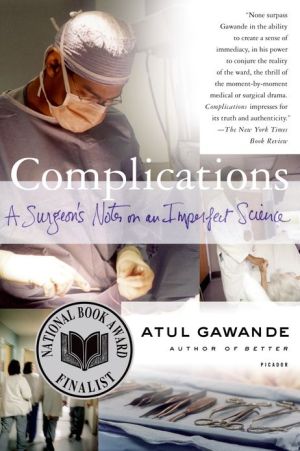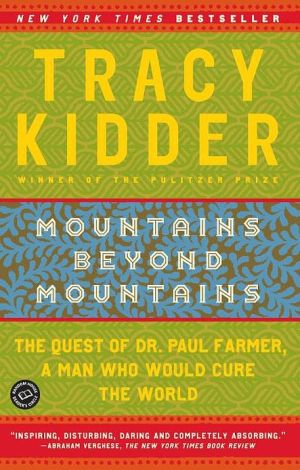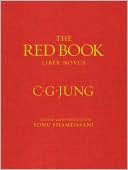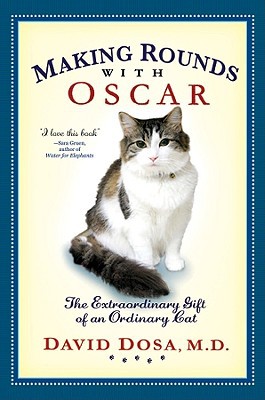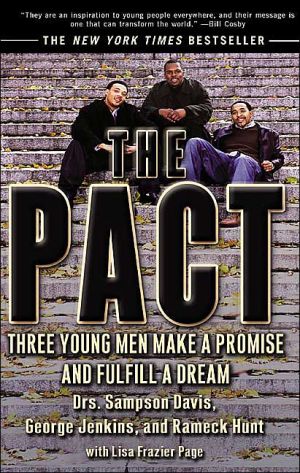Complications: A Surgeon's Notes on an Imperfect Science
In gripping accounts of true cases, surgeon Atul Gawande explores the power and the limits of medicine, offering an unflinching view from the scalpel’s edge. Complications lays bare a science not in its idealized form but as it actually is—uncertain, perplexing, and profoundly human. Complications is a 2002 National Book Award Finalist for Nonfiction.\ \ \ Finalist for the 2002 National Book Award, Nonfiction.\
Search in google:
A brilliant and courageous doctor reveals, in gripping accounts of true cases, the power and limits of modern medicine Publishers Weekly Medicine reveals itself as a fascinatingly complex and "fundamentally human endeavor" in this distinguished debut essay collection by a surgical resident and staff writer for the New Yorker. Gawande, a former Rhodes scholar and Harvard Medical School graduate, illuminates "the moments in which medicine actually happens," and describes his profession as an "enterprise of constantly changing knowledge, uncertain information, fallible individuals, and at the same time lives on the line." Gawande's background in philosophy and ethics is evident throughout these pieces, which range from edgy accounts of medical traumas to sobering analyses of doctors' anxieties and burnout. With humor, sensitivity and critical intelligence, he explores the pros and cons of new technologies, including a controversial factory model for routine surgeries that delivers superior success rates while dramatically cutting costs. He also describes treatment of such challenging conditions as morbid obesity, chronic pain and necrotizing fasciitis the often-fatal condition caused by dreaded "flesh-eating bacteria" and probes the agonizing process by which physicians balance knowledge and intuition to make seemingly impossible decisions. What draws practitioners to this challenging profession, he concludes, is the promise of "the alterable moment the fragile but crystalline opportunity for one's know-how, ability or just gut instinct to change the course of another's life for the better." These exquisitely crafted essays, in which medical subjects segue into explorations of much larger themes, place Gawande among the best in the field. National author tour. (Apr. 4) Copyright 2001 Cahners Business Information.
When you are in the operating room for the first time and see the surgeon press his scalpel to someone's body, you either shudder in horror or gape in awe. I gaped. It wasn't the blood and guts that enthralled me. It was the idea that a mere person would ever have the confidence to wield that scalpel. I wondered how the surgeon knew that all the steps would go as planned, that bleeding would be controlled and organs would not be injured. He didn't, but still he cut.\ Later, I was allowed to make an incision myself. The surgeon drew a six-inch dotted line across the patient's abdomen and then, to my surprise, had the nurse hand me the knife. It was, I remember, still warm. I put the blade to the skin and cut. The experience was odd and addictive, mixing exhilaration, anxiety, a righteous faith that operating was somehow beneficial, and the slightly nauseating discovery that it took more force than I realized. The moment made me want to be a surgeon — someone with the assurance to proceed as if cutting were routine.\ —Malcolm Gladwell, author of The Tipping Point\ "Complications is a uniquely soulful book about the science of mending bodies."\ —Adam Gopnik, author of From Paris to the Moon
Author's Note1Introduction3Pt. IFallibilityEducation of a Knife11The Computer and the Hernia Factory35When Doctors Make Mistakes47Nine Thousand Surgeons75When Good Doctors Go Bad88Pt. IIMysteryFull Moon Friday the Thirteenth109The Pain Perplex115A Queasy Feeling130Crimson Tide146The Man Who Couldn't Stop Eating162Pt. IIIUncertaintyFinal Cut187The Dead Baby Mystery202Whose Body Is It, Anyway?208The Case of the Red Leg228Notes on Sources253Acknowledgments265
\ From Barnes & Noble“No one writes about medicine as a human subject as well as Atul Gawande,” says Adam Gopnik of this Boston surgeon whose articles appear regularly in The New Yorker. Gawande’s descriptions of everything from clumsy surgical mishaps to new cutting-edge operating room techniques are rendered with grace and wonder. Reading his accounts of pain experiments (in which female dancers excel) and medical-convention huckstering, one gains a sense of his stately, sometimes surrealistic profession.\ \ \ \ \ From the Publisher“None surpass Gawande in the ability to create a sense of immediacy, in his power to conjure the reality of the ward, the thrill of the moment-by-moment medical or surgical drama. Complications impresses for its truth and authenticity, virtues that it owes to its author being as much forceful writer as uncompromising chronicler.” —The New York Times Book Review\ “No one writes about medicine as a human subject as well as Atul Gawande. His stories about becoming a surgeon are scary, funny, absorbing....Complications is a uniquely soulful book about the science of mending bodies.” —Adam Gopnik, author of Paris to the Moon\ “Gawande is arguably the best nonfiction doctor-writer around....He’s prescient and thoughtful...the heir to Lewis Thomas’ humble, insightful and brilliantly crafted oeuvre.” —Salon.com\ “Complications is a book about medicine that reads like a thriller. Every subject Atul Gawande touches is probed and dissected and turned inside out with such deftness and feeling and counterintuitive insight that the reader is left breathless.” —Malcolm Gladwell, author of The Tipping Point\ “Gawande is a writer with a scalpel pen and an X-ray eye.... He turns every case—from gunshot wounds to morbid obesity to flesh-eating bacteria—into a thriller in miniature. Diagnosis: riveting.” —Time\ “Gawande’s prose, much like the scalpel he wields, is precise, daring, but never reckless....Much like reading George Orwell, the reader emerges entertained, enlightened, transformed and immensely satisfied.” —Abraham Verghese, author of My Own Country\ and The Tennis Partner\ “Wrenching human tales...Gawande has pushed the medical yarn in a new direction.” —The Boston Globe\ “Atul Gawande is a rare and wonderful storyteller who portrays his profession with bravery and humanity.” —Ellen Goodman, Pulitzer Prize-winning columnist\ “The stories in\ cf0Complications are gripping medical mysteries that always have something extra. Gawande draws you in with the story but leaves you wiser about science, about health care issues, and even about the human condition.” —Michael Kinsley\ \ \ \ Publishers WeeklyMedicine reveals itself as a fascinatingly complex and "fundamentally human endeavor" in this distinguished debut essay collection by a surgical resident and staff writer for the New Yorker. Gawande, a former Rhodes scholar and Harvard Medical School graduate, illuminates "the moments in which medicine actually happens," and describes his profession as an "enterprise of constantly changing knowledge, uncertain information, fallible individuals, and at the same time lives on the line." Gawande's background in philosophy and ethics is evident throughout these pieces, which range from edgy accounts of medical traumas to sobering analyses of doctors' anxieties and burnout. With humor, sensitivity and critical intelligence, he explores the pros and cons of new technologies, including a controversial factory model for routine surgeries that delivers superior success rates while dramatically cutting costs. He also describes treatment of such challenging conditions as morbid obesity, chronic pain and necrotizing fasciitis the often-fatal condition caused by dreaded "flesh-eating bacteria" and probes the agonizing process by which physicians balance knowledge and intuition to make seemingly impossible decisions. What draws practitioners to this challenging profession, he concludes, is the promise of "the alterable moment the fragile but crystalline opportunity for one's know-how, ability or just gut instinct to change the course of another's life for the better." These exquisitely crafted essays, in which medical subjects segue into explorations of much larger themes, place Gawande among the best in the field. National author tour. (Apr. 4) Copyright 2001 Cahners Business Information.\ \ \ \ \ Malcolm Gladwell"Complications is a book about medicine that reads like a thriller."\ \ —Malcolm Gladwell, author of The Tipping Point\ \ \ \ \ Adam Gopnik"Complications is a uniquely soulful book about the science of mending bodies."\ \ —Adam Gopnik, author of From Paris to the Moon\ \ \ \ \ Kirkus ReviewsA gem-like collection of essays on medicine by eighth-year surgical resident, Harvard Med graduate, Rhodes scholar, and New Yorker staff writer Gawande, himself the son of physicians. Part I contains chilling stories of medical errors, some the near-inevitable results of young docs learning their craft by practicing on live patients, some due to the burnout or depression of seasoned specialists. (To his credit, Gawande includes a tale of his own poor judgment in a medical emergency that fortunately ended happily.) Practice does make perfect, the author demonstrates; hospitals specializing in hernia repair, for example, maximize their efficiency for the greater benefit of patients. With profound empathy, Part II chronicles medical mysteries. Readers will feel for the pregnant woman whose nausea and vomiting could not be stopped no matter what antiemetic drug she was given-until her twins were born and that same night she was able to eat a hamburger with blue cheese and fries. Sadly, these anecdotes often serve as reminders that what doctors can't pin down they often dismiss, as when a man with incapacitating back pain was advised by specialists to see a shrink. In Part III, Gawande addresses the issue of uncertainty, an ever-daunting challenge in a profession where information is always imperfect. Autopsies, which would help clarify many cases, are performed with appalling infrequency, perhaps because they reveal a depressing rate of misdiagnosis. The new, more democratic relationship between physicians and patients may also have a downside when patients make the wrong decision. The final chapter reports on a case of heart-stopping suspense, lacking clear indications and plagued by greatuncertainty, in which the doctors' intuition was critical. If Gawande's hands in the operating room are as sure as his handling of words, his success in his chosen career is all but guaranteed. Author tour\ \
